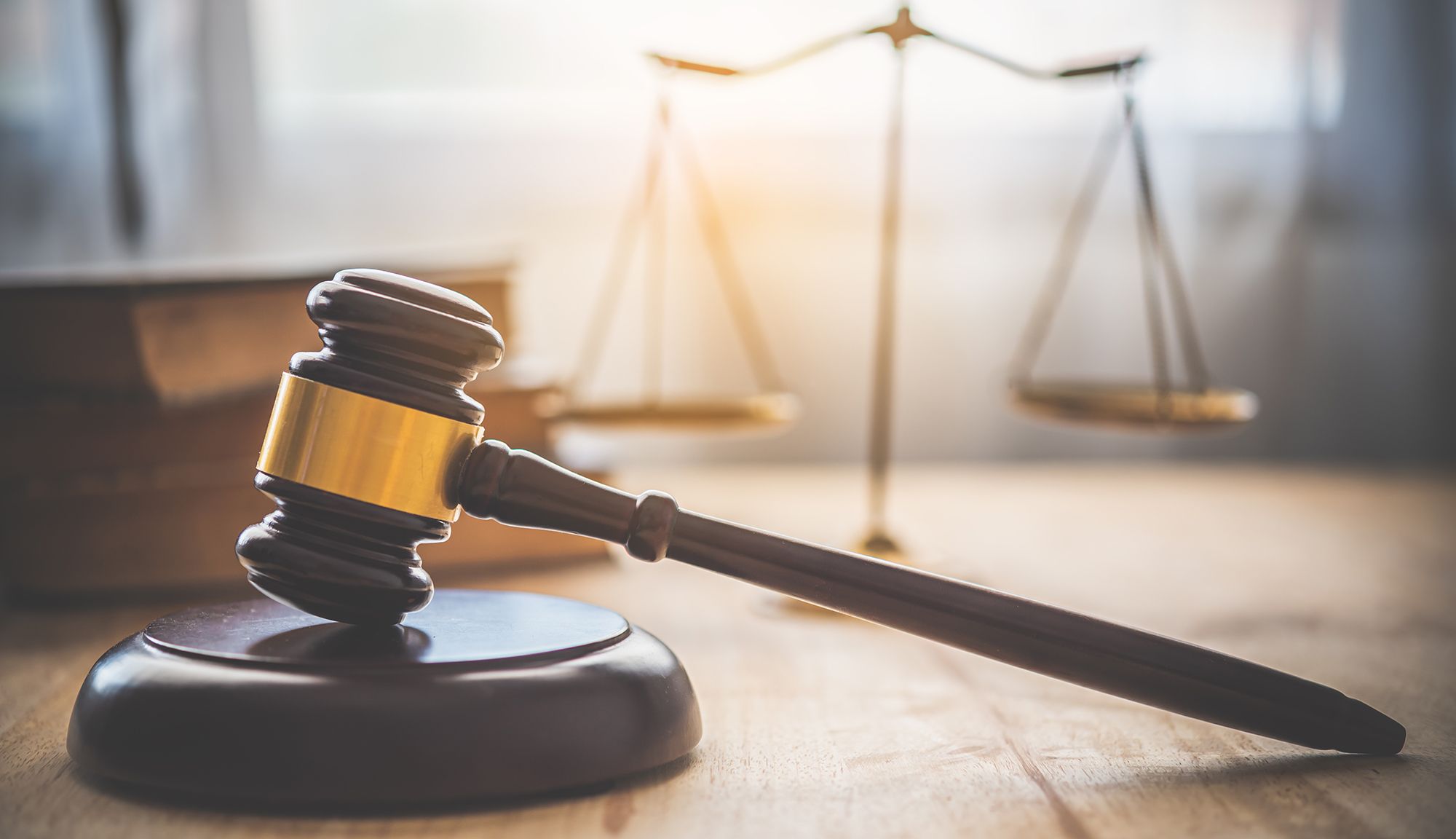Financial News
CCHR Backs UN & Senate Calls for DOJ Action on Coercive Psychiatric Practices
Amid reports of psychiatric hospital abuse, CCHR, a mental health industry watchdog, supports global and U.S. efforts to protect human rights and demand accountability.
LOS ANGELES - Oct. 21, 2024 - PRLog -- Recently, the United Nations Human Rights Council (UNHRC) adopted the resolution 52/12 on mental health and human rights, which calls on the High Commissioner for Human Rights to prepare a comprehensive report on the best ways to implement policy measures for the realization of the human rights of persons with psychosocial disabilities and current or potential users of mental health services.[1] For many years, the UN has been outspoken about the need to prohibit coercive psychiatric practices and reinforced this in August at a meeting of the UN Committee on the Rights of Persons with Disabilities (CRPD.) The Citizens Commission on Human Rights International, a mental health industry watchdog, headquartered in Los Angeles, said that its European branch submitted comments to the committee, condemning forced detainment in psychiatric hospitals and laws that deprive people of their liberty based on arbitrary and inconsistent definitions of "unsound mind."
Following recent exposure of U.S. hospitals detaining patients to exploit their insurance and increase profits, CCHR International has called on U.S. state legislators to revoke the authority of certain hospital chains to involuntarily detain patients.
An estimated 907,000 individuals are involuntarily committed every year to psychiatric facilities across the U.S., Europe, Australia, New Zealand the United Kingdom—about two people every minute.[2] Involuntary psychiatric detentions in the U.S. have outpaced population growth by a rate of 3 to 1 on average in recent years.[3] An article in JAMA Psychiatry reported that involuntary hospitalization was associated with an increased risk of suicide both during and after hospitalization.[4]
The U.S. has been plagued by reports of abuse, especially in privately owned psychiatric and behavioral facilities, including residential treatment centers where patients have been held against their will until their insurance ran out.[5] According to an in-depth New York Times investigation into a major psychiatric hospital chain, patients are often held for financial reasons rather than medical ones. In some cases, judges have intervened to force Acadia to release patients.[6]
Senator Ron Wyden, who headed a Senate Finance Committee investigation into warehousing youths in such facilities has written to the Department of Justice to investigate four of the nation's biggest operators of youth residential treatment facilities for civil rights violations and fraud. NBC News reported, "The letters are the latest escalation by congressional lawmakers of both parties to crack down on misconduct in youth treatment centers, sparked by a wave of activism by former patients and news articles detailing allegations of maltreatment within some facilities….If the DOJ investigates and finds evidence to substantiate Wyden's allegations, it has the power to negotiate policy changes and order financial penalties for the facility operators."[7]
CCHR said that stronger action is needed beyond financial penalties, which are often paid without admitting liability. Behavioral-psychiatric hospital companies that systemically abuse patients should be disqualified from receiving federal contracts, including Medicaid and Medicare. A first step would be revoking their authority to involuntarily detain patients.
In October 2023, the World Health Organization (WHO) and Office of the UN Office of the High Commissioner for Human Rights (OHCHR) issued a strong condemnation of coercive practices, which included "involuntary hospitalization, involuntary medication, involuntary electroconvulsive therapy (ECT), seclusion, and physical, chemical and mechanical restraint."[8]
This was reinforced last August during the 2nd Anniversary of the UN Committee on the Rights of Persons with Disabilities (CRPD) Guidelines on De-institutionalization. CCHR Spain and an attorney were invited to address the committee on the need for international adoption of the guidelines, opposing forced electroshock, psychopharmaceutical drugging and the biomedical model approach in psychiatry. Attorney Isabel Ayusa Peunte spoke about how a Spanish psychiatric association had unsuccessfully tried to silence CCHR from speaking out against psychiatric human rights abuses. The Supreme Court in Spain rejected such efforts, recognizing the UN and CCHR's position, which it determined is a matter for public debate.[9]
Yet U.S. psychiatry has yet to support a zero-tolerance to coercion. CCHR argues that private and state psychiatric facilities can continue to forcibly detain, treat and harm patients, sanctioned by a policy of supporting coercive mental health practices.
CCHR agrees with Senator Wyden, who states, "With the health and safety of kids involved—and pages of evidence—it's time for the DOJ to get involved."[10]
Jan Eastgate, president of CCHR International added: Securing a U.S. and worldwide elimination of forced detainment and treatment would truly be a victory for patients in the mental health field, fully securing much needed human rights, with serious sanctions put in place for violation of these rights."
About CCHR: The group was established in 1969 by the Church of Scientology and the late professor of psychiatry, Dr. Thomas Szasz from the State University of New York Upstate Medical Center and Fellow of the American Psychiatric Association. It has been responsible for hundreds of laws that provide protections for those treated in the mental health industry. This includes legal rights and securing a ban on electroshock in children and on the use of deep sleep treatment involving ECT and coma-inducing psychotropic drugs.
Sources:
[1] www.ohchr.org/en/calls-for-input/2024/call-inputs-mental-health-and-human-rights
[2] www.cchrint.org/2023/07/10/investigation-needed-involuntary-commitment-royal-jubilee/
[3] www.cchrint.org/2024/04/26/cchr-rebukes-psychiatric-association-meeting-for-failure-to-denounce-coercion/; "Study finds involuntary psychiatric detentions on the rise," UCLA Newsroom, 3 Nov. 2020, newsroom.ucla.edu/releases/involuntary-psychiatric-detentions-on-the-rise
[4] www.cchrint.org/2023/01/23/involuntary-commitment-forced-mental-health-treatment-violate-human-rights/; www.madinamerica.com/2019/06/involuntary-hospitalization-increases-risk-suicide-study-finds/
[5] www.cchrint.org/2024/09/05/cchr-seeks-redress-harmed-in-behavioral-facilities/
[6] Jessica Silver-Greenberg and Katie Thomas, "How a Leading Chain of Psychiatric Hospitals Traps Patients: Acadia Healthcare is holding people against their will to maximize insurance payouts, a Times investigation found," The New York Times, 1 Sept. 2024, www.nytimes.com/issue/todayspaper/2024/09/02/todays-new-york-times
[7] Tyler Kingkade, "Senator urges DOJ to investigate youth treatment centers after probe uncovers 'rampant abuse," NBC News, 9 Oct. 2024, www.nbcnews.com/news/us-news/senator-urges-doj-investigate-youth-treatment-centers-rcna174340
[8] World Health Organization, OHCHR, "Guidance on Mental Health, Human Rights and Legislation," 9 Oct. 2023, p. 13
[9] 744th Meeting, 31st Session on the Rights of Persons with Disabilities (CRPD), Second anniversary of the Guidelines on De-institutionalization, webtv.un.org/en/asset/k1i/k1i6b968s1 (start at 34:18 mins).
[10] Sara Tiano, "Senator Calls for DOJ to Investigate Private Companies Providing Residential Treatment for Youth," Imprint News, 10 Oct. 2024, imprintnews.org/top-stories/senator-calls-for-doj-to-investigate-private-companies-providing-residential-treatment-for-youth/255482
Photos: (Click photo to enlarge)

Source: Citizens Commission on Human Rights
Read Full Story - CCHR Backs UN & Senate Calls for DOJ Action on Coercive Psychiatric Practices | More news from this source
Press release distribution by PRLog
More News
View More




Recent Quotes
View MoreQuotes delayed at least 20 minutes.
By accessing this page, you agree to the Privacy Policy and Terms Of Service.



